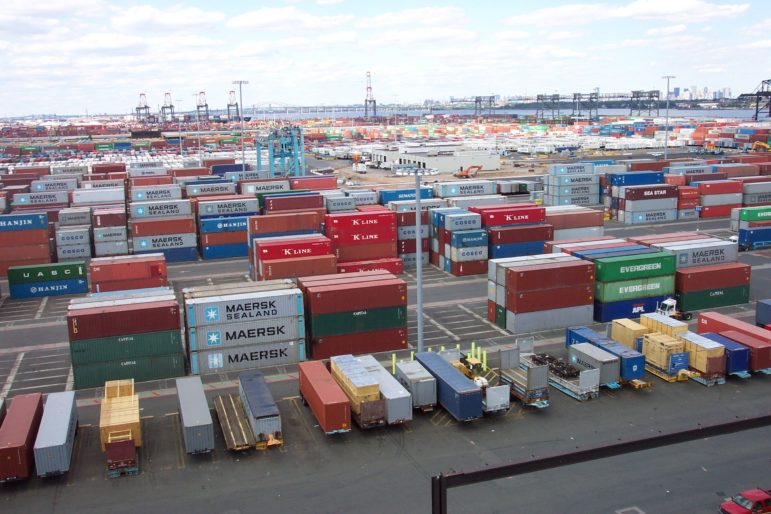
July 13, 2016; NPR, “Around the Nations”
Correction: The original published version of this article misstated information from an outdated report by the National Human Trafficking Resource Center. The article originally stated sex trafficking was most prevalent in trucking venues and the drivers represented a majority of the customer base. This is incorrect. Documented trafficking at truck stops comprises a smaller percentage compared to trafficking at other venues. Kylla Lanier was also referenced as the executive director of Truckers Against Trafficking. She is the deputy director. NPQ regrets these errors.
Human trafficking, the illegal trade of people for exploitation or commercial gain, is a complex and rampant crime that has proven to be difficult for law enforcement, and society in general, to abate. Its perpetrators generate $150 billion globally through forced labor, including the prostitution of women and girls. Sex trafficking in particular is grossly underreported and more often than not goes unnoticed by those who may encounter it in plain sight. But one industry that has frequently been deemed a hotbed for sex trafficking is now stepping up as a voice for those who are victimized by this horrendous crime.
Truckers Against Trafficking (TAT) encourages truck drivers and truck stop employees to stay alert and aware of sex trafficking taking place along the interstates. Through targeted training as part of a standard truck-driving curriculum, drivers are educated on how to identify possible victims, including “sullen, hopeless-looking children, teens, and young adults.” The organization has allied with truck stops throughout the country, providing employees and drivers with educational materials and resources, including the phone number to the National Human Trafficking Resource Center’s (NHTRC) hotline. As a result, 1,371 drivers have called, identifying 425 likely cases involving 744 victims, 249 of whom were minors.
Sign up for our free newsletters
Subscribe to NPQ's newsletters to have our top stories delivered directly to your inbox.
By signing up, you agree to our privacy policy and terms of use, and to receive messages from NPQ and our partners.
Because of their remote locations, truck stops and rest areas bode well for sex traffickers looking for a convenient and undercover place to pimp their victims. Their isolation also makes it increasingly difficult for victims to escape or seek help. Using industry partners, state government coalitions, and collaboration with law enforcement agencies, TAT is aiming to reposition the trucking industry’s involvement in the sex trafficking positively and rescuing victims along the way.
As TAT’s deputy director Kylla Lanier recently pointed out on NPR’s All Things Considered, trafficking is ubiquitous, but truckers are too, making them logical allies in this effort. “Trafficking happens everywhere. It’s happening in homes, in conference centers, at schools, casinos, truck stops, hotels, motels, everywhere. You know, it’s an everywhere problem, but truckers happen to be everywhere.”
While TAT and other similar organizations have a long road ahead of them in the fight against human trafficking, Truckers Against Trafficking’s unique on-the-ground approach empowers victims as well the individuals working to rescue them. “I know what signs to look for. I know what actions to take. Be on the lookout for this,” said Missouri TA Travel Plaza District Manager Sam Tahour. “This is what’s going on out there, and these people need a hero.”—Lindsay Walker













